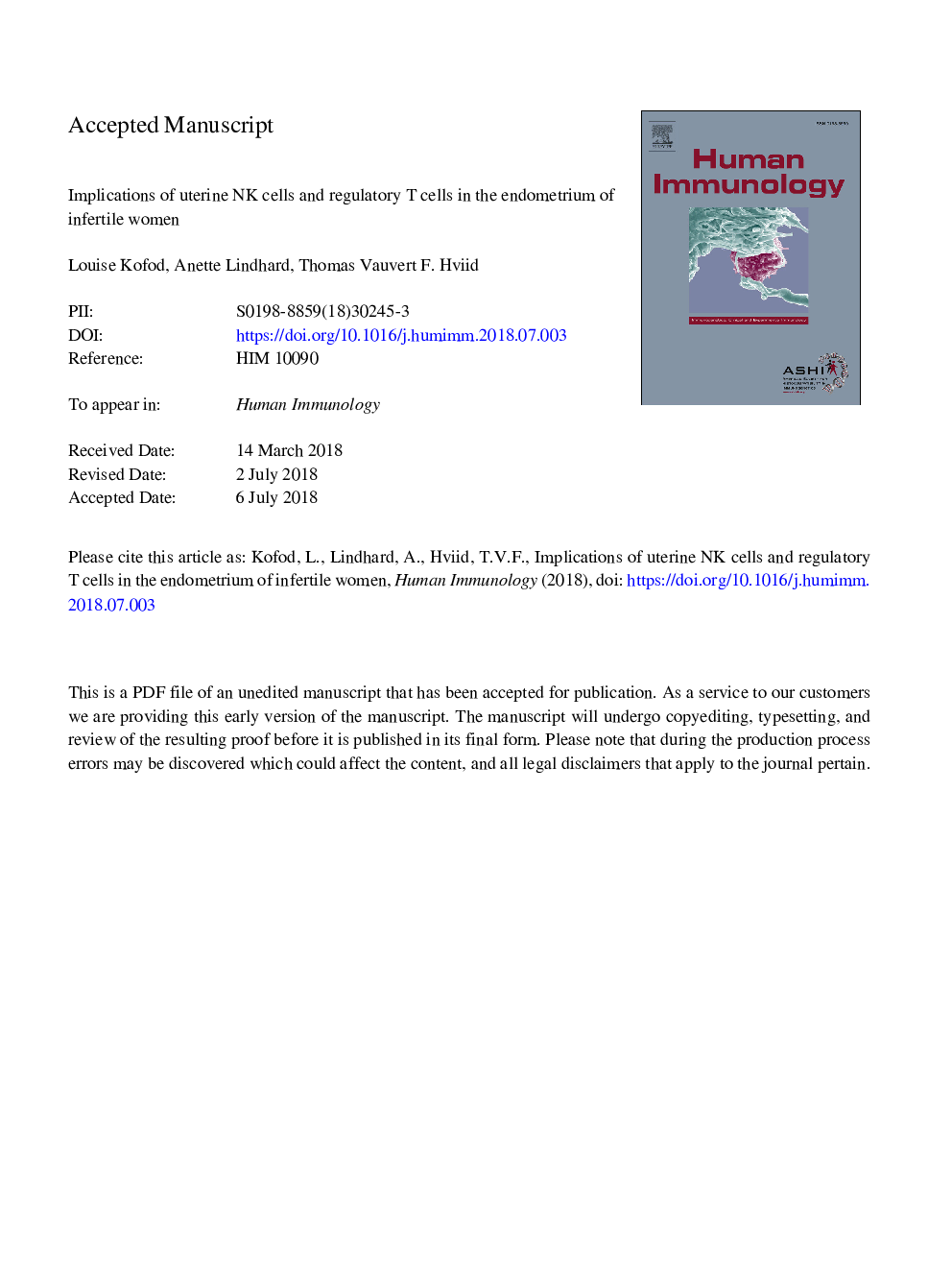| Article ID | Journal | Published Year | Pages | File Type |
|---|---|---|---|---|
| 8737551 | Human Immunology | 2018 | 37 Pages |
Abstract
A range of studies have shown that the complex process of implantation and an establishment of a pregnancy also involves immune factors. Disturbances in these underlying immune mechanisms might lead to implantation and pregnancy failure and may be involved in the pathogenesis of unexplained infertility. Several studies have reported that imbalances in uterine NK (uNK) cell abundance are associated with infertility; however, controversies exist. An increased amount of CD56+ uNK cells along with a decrease in CD16+ uNK cells have been associated with normal fertility in some studies. Very few studies of FoxP3+ regulatory T cells (Tregs) in the pre-implantation endometrium have been performed. Results are sparse and controversial, studies reporting both increased and decreased numbers of Tregs, respectively, in women suffering from infertility. In conclusion, studies imply that uNK cells, Tregs and HLA-G carry pivotal roles regarding the establishment of a healthy pregnancy, and that abnormal immune mechanisms involving these parameters may be associated with infertility. However, more research in early phases of the reproductive cycle, such as investigating the conditions in the endometrium before implantation, is needed to further clarify the underlying mechanisms.
Keywords
ADCCM-CSFcytotoxic T-lymphocyte antigen-4IPEXGM-CSFNCRILTimmune dysregulation, polyendocrinopathy, enteropathy, X-linkedKirINF-γsHLA-GLIFIUGREVTCTLA-4macrophage-colony-stimulating factorgranulocyte-macrophage-colony-stimulating factorHO-1antibody-dependent cell-mediated cytotoxicityHuman leukocyte antigenHLAinterleukinAssisted reproductive technologyimmunoglobulin-like transcriptrecurrent miscarriageNK cellsNatural killer cellsleukaemia inhibitory factorintrauterine growth retardationgranulocyte colony-stimulating factorG-CSFIn vitro fertilizationIVFARTluteinizing hormoneInterferon gammakiller cell immunoglobulin-like receptorNatural cytotoxicity receptors
Related Topics
Life Sciences
Immunology and Microbiology
Immunology
Authors
Louise Kofod, Anette Lindhard, Thomas Vauvert F. Hviid,
